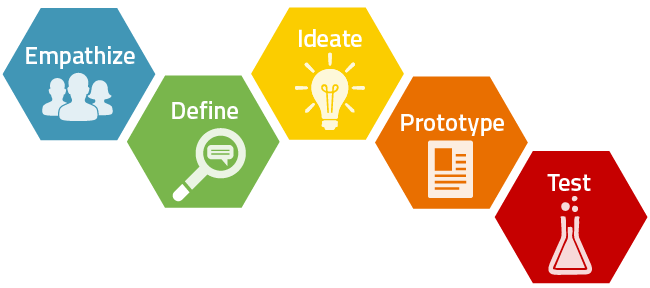Exploring the emergence and impact of Design Thinking with Toby Scott
Toby Scott tells the story of Design Thinking, and shows us just how powerful it can be in making things better for people.
Performing arts was a foundational part of Toby's career journey, and started him on understanding what creativity is and how it impacts us and the world around us. This lead to helping seed the policy manifesto for the UK Labor party.

This is one of the main diagrams used to communicate the flow of Design Thinking, but what were the precursors to Design Thinking? What was it before it got its name?
In an ABC nightline episode iconic design firm IDEO redesigned the supermarket shopping cart, exemplifying the benefits of thinking like a designer.
You can watch a clip from that episode on YouTube here: YouTu.be/M66ZU2PCIcM
Toby explains how Design Thinking helps us navigate changing environments. Things just aren't as predictable and reliable as they used to be. Customer needs, technology, it's all changing more and more quickly. What can we do when reliability comes into question?
Innovation often gives rise to automation, but it doesn't seem that automation returns the favor? If anything it imposes limits on innovation.
Design Thinking is a great name, a good packaging, but what is it under the iconic idea it has become?
Toby enumerates several core aspects behind this behemoth of a methodology.
Toby runs us through several examples of where there's a stark difference between what people say they do, and what they actually do.
I won't even ruin this one for you, just click 'play from here.'
Toby tells a story about that time he had a bunch of bank employees try to fill out their own mortgage application. Spoiler: The form was a big pain in the rear.
Costa recounts when he was first exposed to user-centered design. It's interesting, we have all done this at some point. The set of habits that make up Design Thinking are essentially quite human at their core.
At the end of the day, the purpose of design is just this: Make Things Better for People
Sometimes the insights are harder to get to than we think. Something as simple as a noticing someone take a pause, might be the only clue you have.